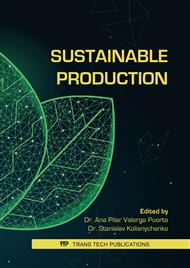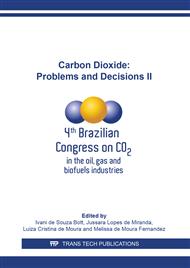p.49
p.59
p.69
p.79
p.87
p.97
p.107
p.117
p.125
Water and Power Consumption, Ethanol Production and CO2 Emissions: High-Scale Sugarcane-Based Biorefinery Toward Neutrality in Carbon
Abstract:
The present work assesses water and power consumption, ethanol production and CO2 emissions in order to evaluate the technical and economic feasibility of a high-scale sugarcane-based biorefinery and propose a scenario of full carbon and capture system, so the complex could become a sustainable carbon withdrawer from the atmosphere. This work is performed with the aid of professional software for a rigorous mass and energy balances simulation to achieve process data for plant technical and economic analysis. The combustion of sugarcane bagasse is the only source of energy of the plant, which provides steam for the distillery and generates electricity through cogeneration system. The ethanol production from sugars fermentation produces CO2 which, jointly with the CO2 from combustion, is released directly into the atmosphere contributing to global warming. Results demonstrate that for processing capacity of 1,000 t/h of sugarcane, the plant emits 0.7 tCO2 per ton of sugarcane, with net water consumption of 3,600 m3/h as make-up water to replace blowdown and evaporation losses in the cooling tower. The cogeneration system generates 320MW of net power for exportation as electricity. The economic analysis reveals a fixed capital investment of 910MMUSD and a net present value of 378MMUSD considering as revenues the ethanol produced and the electricity from cogeneration at an annual discount rate of 10%.
Info:
Periodical:
Pages:
87-95
DOI:
Citation:
Online since:
July 2019
Price:
Сopyright:
© 2019 Trans Tech Publications Ltd. All Rights Reserved
Share:
Citation:




